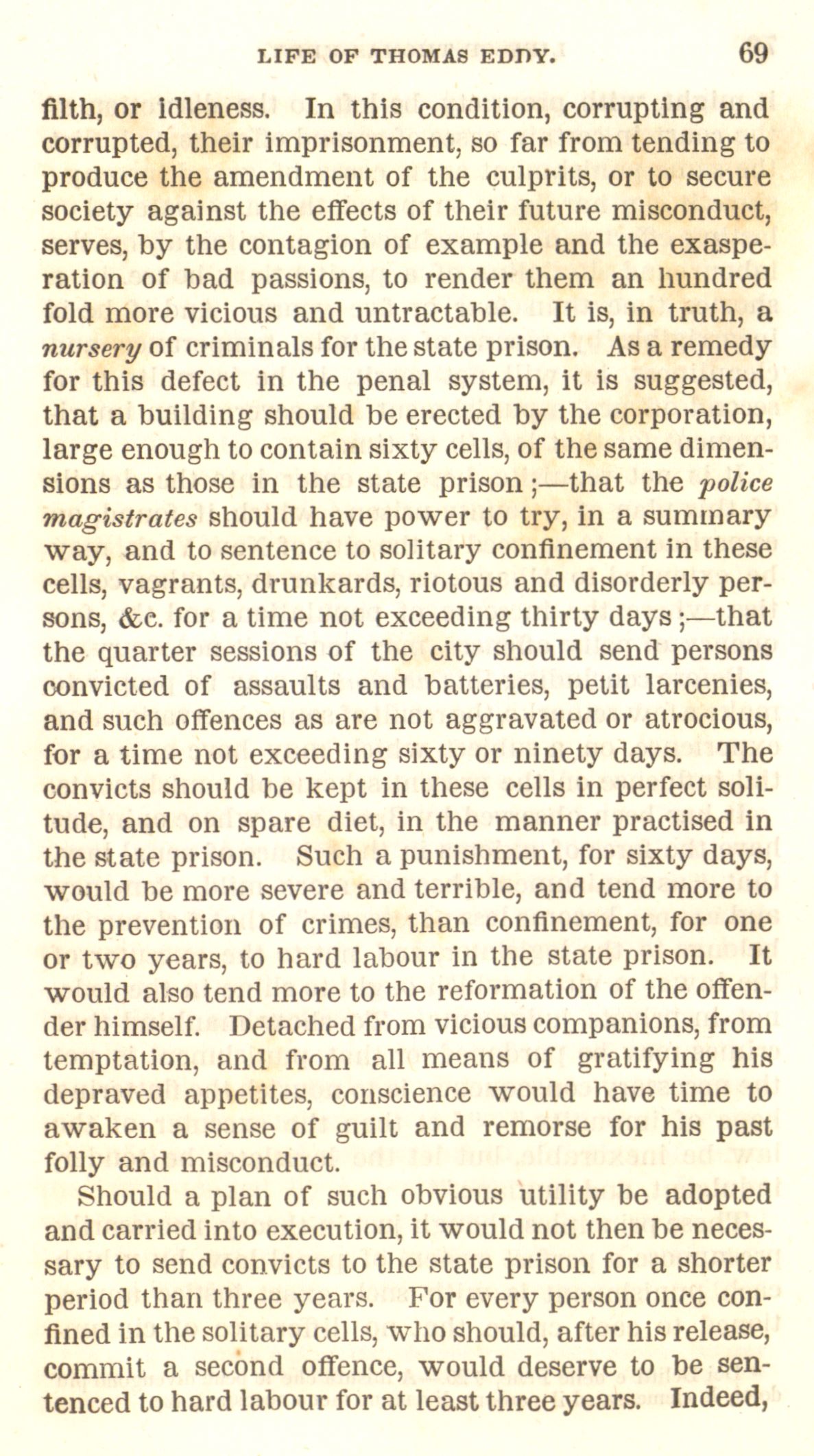filth, or idleness. In this
condition, corrupting and
corrupted, their imprisonment, so far
from tending to
produce the amendment of the culprits, or to
secure
society against the effects of their future misconduct,
serves, by the contagion of example and the exaspe-
ration of bad
passions, to render them an hundred
fold more vicious and
untractable. It is, in truth, a
nursery of criminals for the state prison. As
a remedy
for this defect in the penal system, it is suggested,
that a building should be erected by the corporation,
large enough
to contain sixty cells, of the same dimen-
sions as those in the
state prison-that the police
magistrates
should have power to try, in a summary
way, and to sentence to
solitary confinement in these
cells, vagrants, drunkards, riotous
and disorderly per-
sons, &c. for a time not exceeding thirty
days;—that
the quarter sessions of the city should send
persons
convicted of assaults and batteries, petit larcenies,
and such offences as are not aggravated or atrocious,
for a time
not exceeding sixty or ninety days. The
convicts should be kept in
these cells in perfect soli-
tude, and on spare diet, in the manner
practised in
the state prison. Such a punishment, for sixty
days,
would be more severe and terrible, and tend more to
the
prevention of crimes, than confinement, for one
or two years, to
hard labour in the state prison. It
would also tend more to the
reformation of the offen-
der himself. Detached from vicious
companions, from
temptation, and from all means of gratifying
his
depraved appetites, conscience would have time to
awaken a
sense of guilt and remorse for his past
folly and misconduct.
Should a plan of such obvious utility be adopted
and carried into
execution, it would not then be neces-
sary to send convicts to the
state prison for a shorter
period than three years. For every
person once con-
fined in the solitary cells, who should, after his
release,
commit a second offence, would deserve to be
sen-
tenced to hard labour for at least three years. Indeed,

